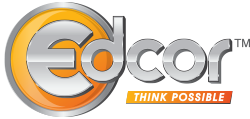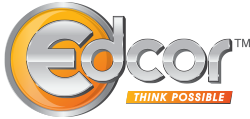Almost every state in America (45) has the goal to raise postsecondary education attainment. Yet, according to a report by National Student Clearinghouse Research Center, the Some College, No Credential (SCNC) student population in the U.S. is a whopping 40.4 million. While it may be well known that college enrollments pivoted to their lowest point during the pandemic, it’s appalling that we’ve added 1.4 million SCNC students between the years 2020 and 2021 – a 3.6 percent rise from 39.0 million compared to the previous year. Further, the Gallup study on The State of Higher Education 2023 highlighted some key findings after studying thousands of Americans who started their postsecondary educational journey but never re-enrolled or completed it. The study was carried out on working adults in the age range of 25 to 59 years and therefore is insightful for corporates. Here are the highlights.
- Importance of Higher Ed: Almost 74% of the respondents opine that two- to four-year degrees are now equally (35%) or more important (39%) in building a successful career than it was two decades back.
- Interest in Higher Ed: Almost half of the population (47%) of adult learners who are not presently enrolled in an educational program reported that they have thought of enrolling in higher ed in the past couple of years.
- Diversity groups and re-enrollment: Around 58% of Black adults and 53% of Hispanic adults reported that they are considering enrolling in a program, and 47% of women who are unenrolled are considering enrolling too.
- Reasons for considering enrolling: Among the various reasons the top ones for re-enrolling are: filling skills gaps (64%), personal growth (57%), getting a higher-paying job or moving up the career path (56%), and pursuing more fulfilling careers (49%).
- Types of degree: Adults in the age group of 25 to 59 years, and those who are currently unenrolled are considering shorter-term courses like certificates (41%) or associate degrees (40%) over the long-term traditional options.
- Most Common Barriers: The unenrolled learners (55%) cite financial barriers and the rising cost of education as the most significant barrier, affordability due to inflation (45%), and difficulties in managing time for academic pursuits and work (38%) follow closely. Some other factors such as caregiver responsibilities, not knowing what to do, inadequate preparation, and mental or physical health issues were also cited as barriers to enrollment.
Additionally, we have found that summer is a time when enrollments fall significantly among working adults. Be it due to work or family commitments or a lack in the number of valuable college courses available at this time – the reality of it is that many of these drop-outs do not re-enroll soon enough or at all. As always instead of dwelling on the problem, we want to throw light on the solutions.
What can HR do to help employees with some college experience yet no credentials?
Surprisingly HR can help in more ways than one. Here’s what you can do.
- Lean on Education benefits. Education benefits like Tuition Assistance, Student Loan Repayment Assistance, and Scholarships help bring down the ticket price of higher education thereby mitigating the financial barriers.
- Have a Holistic Tuition Assistance policy that covers short-term courses, certifications, and stackable certificate degrees along with traditional degrees that caters to the varied needs of learners. Especially those who cannot commit time to a 4-year course can earn some credentials through stackable certificate degrees and move up their goals.
- Even better is a Tuition Assistance policy that involves direct or upfront payments for education. For some learners, paying out-of-pocket is a significant barrier to going back to school which can be overcome through this policy change.
- Facilitate Academic Advising that is agnostic in nature, provides freedom of choice, and caters to the unique journeys of learners. The success coaches provide handholding every step of the way and keep them accountable at each milestone. This is a valuable tool that helps adult learners achieve their academic goals in the shortest possible time.
- Debt-free degrees are yet another attractive proposition where the employer’s tuition assistance and grants from educational partners over a period lead to almost zero-debt degrees or education.
- Apart from the policy, solid PR within the organization can do wonders. Measures such as effective communication about the benefits, senior management endorsements, and success stories from peers can do a world of good for the SCNC students who are on edge.
You can also download Edcor’s whitepaper on ‘Underutilized to Optimized Guide to Maximizing Usage of Your Education Benefits’ for a stepwise guide on enhancing uptake of ed benefits.
Edcor has one of the highest rates of course completion in the industry. With our Academic Advising and School Network, we enable client employees reach their goals in the shortest possible time.
If your are a dedicated HR professional keen on helping the SCNC learners at your organization, Edcor can help you with each of the elements above and more. Feel free to reach out to us.

Edcor is a woman-owned business and is the benchmark in education benefits administration. For 42 years, our customized service and solutions have allowed Fortune 500 Clients to use education benefits programs for employee recruiting, retention, and development.
Spardha Khera, Edcor



